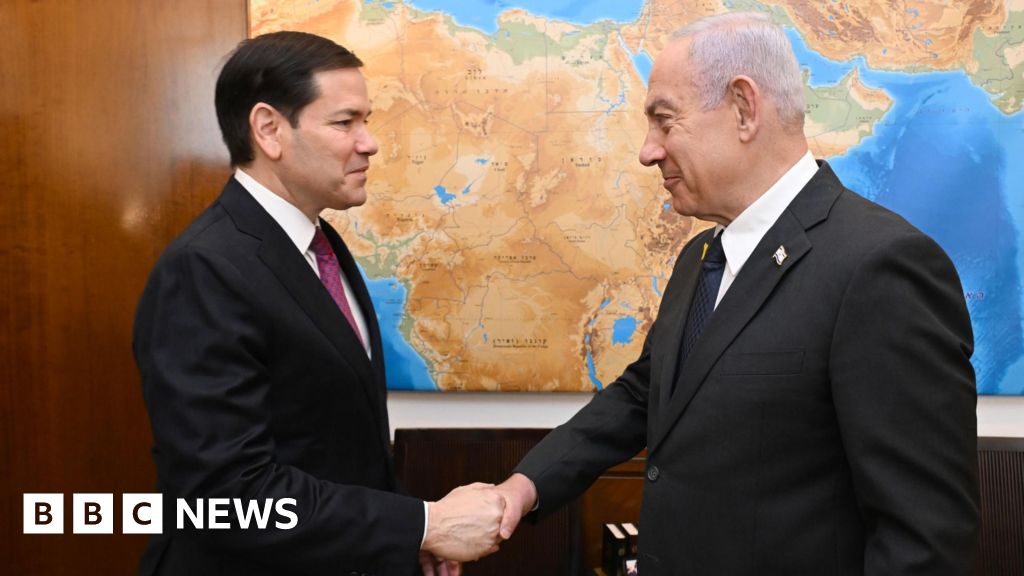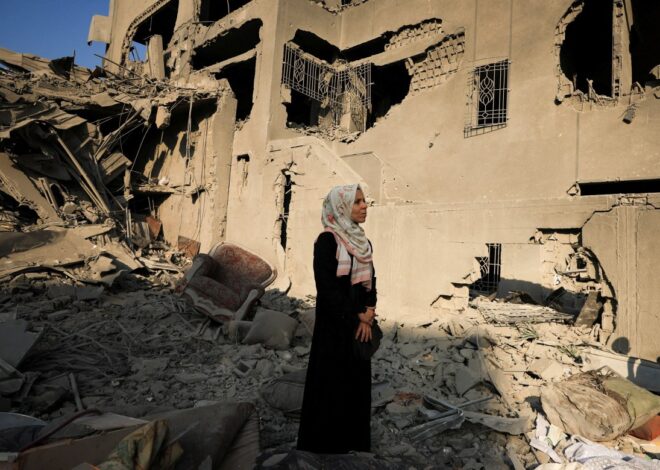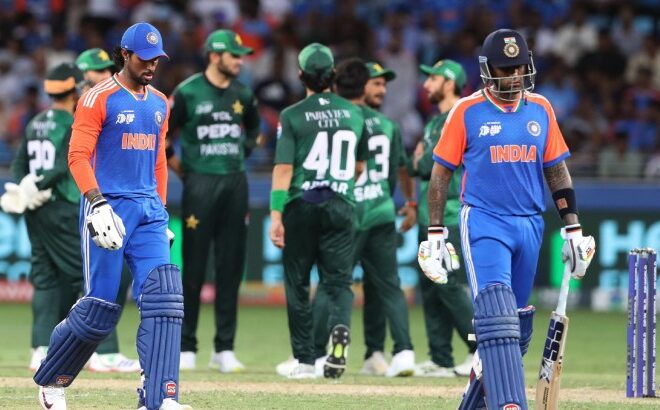
Rubio meets Netanyahu to discuss fallout from Qatar strike

Rubio Meets Netanyahu to Address Consequences of Israel’s Strike in Qatar
In a significant diplomatic meeting, U.S. Secretary of State Marco Rubio convened with Israeli Prime Minister Benjamin Netanyahu in Jerusalem. The discussions primarily focused on the ramifications of Israel’s recent military action in Qatar, which has sparked considerable international criticism and raised tensions in the region.
The Controversial Strike in Qatar
Last week, Israeli forces executed a strike in Qatar that specifically targeted senior Hamas leaders. This operation has drawn widespread condemnation, including from President Donald Trump, who expressed dissatisfaction with the action. Rubio, addressing the situation, stated, “Obviously we’re not happy about it. The president was not happy about it. Now we need to move forward and figure out what comes next.” This statement underscores the delicate balance the U.S. seeks to maintain in its relations with both Israel and its Arab allies.
The strike has intensified scrutiny of Israel’s military strategies, especially given Qatar’s status as a close ally of the United States. The Gulf nation is not only home to a significant U.S. airbase but has also been instrumental in facilitating diplomatic efforts to mediate the ongoing conflict between Hamas and Israel.
Arab Leaders Rally for Qatar
The timing of the meeting coincides with a summit of Arab leaders, who have gathered to express solidarity with Qatar in the wake of the Israeli strike. The Prime Minister of Qatar has urged the international community to cease applying “double standards” in its approach to Israel and to hold the nation accountable for its actions. This call for equity resonates across the Arab world, highlighting the complexities of regional politics and the ongoing conflict in Gaza.
Symbolic Visit to the Western Wall
During their meeting, Netanyahu and Rubio made a brief visit to the Western Wall, a site of profound significance in Jerusalem. Netanyahu asserted that the U.S.-Israel relationship remains as “durable as the stones in the Western Wall.” Accompanied by U.S. Ambassador to Israel Mike Huckabee, Rubio participated in the ritual of placing a note into the wall, a gesture that symbolizes prayer and reflection. Notably, both leaders chose to sidestep questions from reporters regarding the contentious strike in Qatar, indicating the sensitive nature of the discussions.
Broader Military Context
In addition to the fallout from the Qatar strike, Rubio and Netanyahu were expected to discuss Israel’s military operations in Gaza. Reports indicate that the Israeli Defense Forces (IDF) are intensifying their efforts to demolish residential buildings in Gaza City. The military has also signaled its readiness to initiate ground operations in western neighborhoods of the city, further escalating the humanitarian crisis.
As the situation develops, the Israeli military has urged residents of Gaza City to evacuate southward to a central area of the Gaza Strip. Israeli estimates suggest that approximately 250,000 Palestinians have already fled the area, yet many remain trapped. Some residents cite financial constraints that prevent them from relocating, while others express concerns for their safety in southern Gaza, where Israeli airstrikes have also occurred. Reports indicate that numerous individuals who attempted to move south were unable to find safe shelter and returned to Gaza City.
Upcoming UN General Assembly Meeting
The discussions between Rubio and Netanyahu occur in the context of an upcoming United Nations General Assembly meeting, where several key U.S. allies, including the United Kingdom, France, Canada, Australia, and Belgium, are anticipated to formally recognize the State of Palestine. This potential development could further complicate U.S. foreign policy in the region and the dynamics of the Israeli-Palestinian conflict.
Conclusion
The meeting between Rubio and Netanyahu highlights the ongoing complexities of Middle Eastern diplomacy, especially in light of recent military actions and their broader implications. As both leaders navigate these turbulent waters, the international community watches closely, awaiting the next steps in a conflict that continues to evolve.
Key Facts
– Marco Rubio, U.S. Secretary of State, met with Israeli Prime Minister Benjamin Netanyahu in Jerusalem.
– The meeting addressed the fallout from Israel’s military strike in Qatar targeting Hamas leaders.
– The strike has drawn international criticism, including from President Donald Trump.
– Qatar is a key U.S. ally and has played a significant role in mediating the conflict between Hamas and Israel.
– Arab leaders are currently holding a summit in support of Qatar.
– Israel’s military operations in Gaza City are ongoing, with significant humanitarian concerns.
– A UN General Assembly meeting next week may see several countries recognize the State of Palestine.
Source: www.bbc.com


